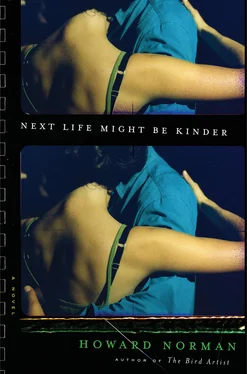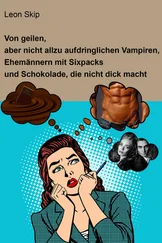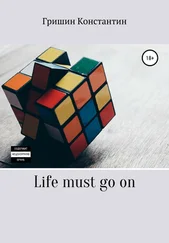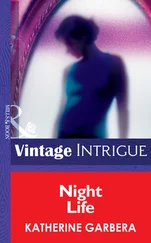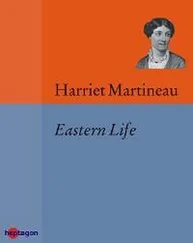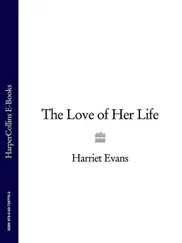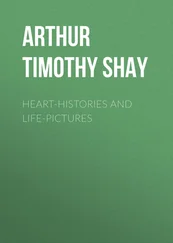Since leaving the law, Philip has written a controversial and best-selling book about a judge who took bribes. He titled it Crooked Judge. “The title came out of my new directness as a person,” Philip said that same evening. “Now that I’ve told you my life story, want to take a trip to the end of the world? Well, just to the beach at Vogler’s Cove. It’s a short drive. We’ve got a good hour of daylight left.”
Cynthia is a year older than Philip. She was married once before, as Philip had been. She designs tables and has sold her designs all over the world. The only maker of tables I have ever read about was Diego Giacometti, the famous artist Alberto’s brother. An artist himself, Diego constructed glass-topped tables with welded cast-iron legs and frames, some festooned with intricately made birds. He named one table Glass Aviary. In her library Cynthia had a number of books about Diego Giacometti’s tables, and one about the wooden cabinets he designed. Cynthia works every morning in her studio, a structure separate from the house whose window also looks out on the beach. “I let two, at most three, designs out of the house every year,” she told me. “I work all the time. All the time. I just don’t let much out of the house.”
I’ve noticed of late that one of Philip’s oft-used phrases is “situational ethics.” He’s been mulling over his next book; his subject hasn’t come into full focus yet, but it’s something to do with how certain Canadian judges, in critical moments during murder trials, “experience a kind of ethical confusion and make a dubious decision,” as Philip explained it. “It’s about how the simple words ‘sustained’ and ‘overruled’ are never really simple. They can have enormous repercussions. I want to trace all this from the initial utterance to a good or bad end. I’m still working all this out. I’m filling notebooks.” Philip applies the term “situational ethics” to day-to-day behavior too, with his friends, his family, himself. The phrase is constantly on his mind.
Anyway, I was getting to know my neighbors pretty well. One late-spring afternoon, Cynthia dropped by the cottage and asked if I would like to accompany her to some antique shops in villages along Route 3—Eagle Head, Beach Meadows, Western Head, White Point, Hunt’s Point, maybe as far south as Wreck Point.
But I said, “I don’t think I’d be very good company today.”
“That makes two of us,” she said. “How about it anyway? I’ll get us back before dark.” I knew she was alluding to my nightly visits to the beach to see Elizabeth. She was so easygoing and accepting, I changed my mind.
There was a cool breeze, and enormous cumulus clouds floated over the sea. We were having a very good time in the car, talking, not talking. After we’d visited a number of shops, we stopped for lunch at Lower Point Herbert, farther along the coast than Cynthia had intended to drive. “Nice we could both set our bad moods aside for the day, isn’t it?” she said. Following lunch, we decided to continue on to Gunning Cove and made a few stops along the way, this or that antique shop.
At about five o’clock, almost at Gunning Cove, we saw an estate sale in progress at an enormous nineteenth-century gabled house with a wraparound porch, in obvious disrepair. All sorts of furniture and paraphernalia were set out on the lawn. There were fifteen or so people looking things over. The house itself was for sale, too. Off to the left, sitting at a roll-top desk (also for sale), sat a stodgy-looking woman about forty-five years old. There was a handmade sign taped to the table: HAGGLING ALLOWED. Cynthia went over to the woman and found out that she was the granddaughter of the original owners of the house, who’d had eleven children and nineteen grandchildren when they died—“within two days of each other, her grandparents, isn’t that something?” Cynthia said to me.
“Detective Cynthia,” I said. “I’m impressed.”
“Still, one thing I’ve learned from living in Port Medway — sometimes the more chatty, the deeper the secrets.”
I sat on the porch watching people inspecting items, buying, hauling off a lamp here, a chair there. Sales of the small items especially were brisk, and the till was slowly filling. I turned my attention to Cynthia, who had gotten down on her knees to inspect something. She then joined me on the porch, tapped a cigarette out of its pack—“I allow myself one per day”—and lit it with a lighter, drawing in the smoke with her lips and cheeks with the succinct choreography of, say, Bette Davis. “My heart is beating a mile a minute,” she said. “I’m going to have a heart attack.”
“What happened, Cynthia?”
“I think — I think— oh, this is too much. Sam, I believe I’ve found a Diego Giacometti table. It’s got the tiny birds and everything.”
“Come on. You’re having an antiquer’s hallucination or something.”
“I’ve studied his tables for thirty years. It’s a signature Diego Giacometti.”
“Here in Gunning Cove, Nova Scotia?”
“I’ve read everything about Giacometti tables. I even attended lectures in Paris and Rome — Philip and I went. And one thing I remember is how American and Canadian servicemen in Europe would pick up amazing art for very small sums. It was the war, of course. Artists were letting things go for a pittance.”
“So you speculate that someone in this family was in France or Italy.”
“That’s my somewhat educated guess.”
“Go back and look again, Cynthia.”
Dropping the cigarette on the porch and pressing a heel to it, Cynthia returned to the ornate table, which had a china tea set on it and a dozen or so paperback books. She then got down on the ground and lay on her back (I didn’t see anyone else notice) and, elegant as she was, inelegantly slid halfway under the table. A few moments later, she slid out again, got to her feet, brushed off the back of her slacks and jacket, tapped a second cigarette from its package, lit it with her lighter, took a few puffs, then walked back to sit next to me on the porch.
“Is it?” I asked.
“Definitely. I all but saw Diego Giacometti’s reflection in the glass.”
“What’s it going for?”
“Twenty-five dollars.”
“Chump change, like they say in the States.”
“Know what’s ringing in my ears? That goddamn thing Philip keeps saying: situational ethics. What are the options here, do you think, Sam? All right, should I just tell the granddaughter what the table is? Tell her its potential worth? You know?”
“What do you think it might be worth?”
“A hundred thousand, if Sotheby’s, or another of the big auction houses, was to appraise and sell it. Oh, I don’t know,” Cynthia said. “I may be high in my estimation. Then again, I might be short.”
“A life-changing amount for most mortals.”
“Even after the auctioneer’s fee. If one were to go that route.”
“Okay, that’s one option,” I said. “You educate the granddaughter, your good deed for the day, and we go home. You could leave her your address. Maybe she’ll send you a thank-you note.”
“Option number two: I buy the table and keep it,” Cynthia said. “An authentic Diego Giacometti table. The granddaughter remains in the dark. What she doesn’t know doesn’t hurt her. Or what is hurting her she’ll never know about. Six of one, half a dozen of the other.”
Cynthia thought for a moment and added, “Option three: I sell it and send the granddaughter a big check. Or how about, I tell the granddaughter it’s a Diego Giacometti and say I feel she should know, in case someone in her family had been in Italy or France during the war, give her a context. Give her some history and say I feel it is very much underpriced, and can I offer her, say, a thousand dollars.”
Читать дальше
